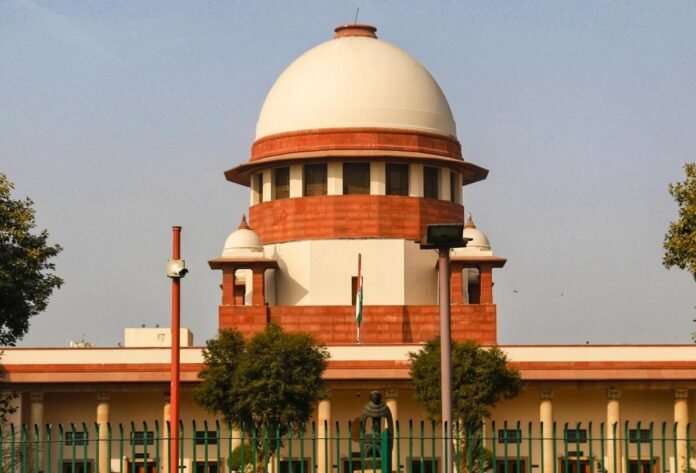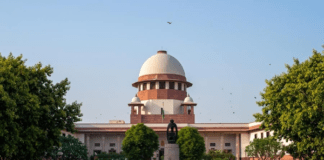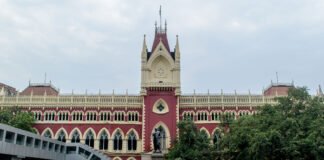Senior Advocate Dr. S Muralidhar has raised serious concerns about the laxity in implementing Supreme Court directions against “bulldozer actions,” a growing trend where authorities demolish houses of accused individuals as a punitive measure.
In a recent discussion, Senior Advocate Dr. S Muralidhar voiced strong concerns about the ongoing practice of “bulldozer justice” in India, warning that despite the Supreme Court’s intervention, there remains a worrying gap in the effective implementation of its directions. This controversial practice involves demolishing the properties of people accused of criminal activities, often without due process or legal recourse, and has gained considerable attention over the past few years.
The practice of using bulldozers to demolish houses of alleged criminals, often in the wake of communal riots or accusations of terrorism, has sparked debates across legal, human rights, and political circles. While some argue that it serves as a deterrent to crime, many view it as a clear violation of constitutional rights, particularly the right to housing and the presumption of innocence until proven guilty.
Dr. Muralidhar emphasized that although the Supreme Court had intervened in several cases and issued important directions to curb such actions, the state authorities have shown insufficient willpower to adhere to these judicial instructions. This reluctance or negligence raises the need for more effective oversight, with the Supreme Court at the helm.
The Supreme Court’s Interventions and the Need for Continuing Oversight
The issue of demolitions as a form of punishment came into sharper focus when the Supreme Court issued a landmark judgment in 2022. In this case, the Court directed authorities to refrain from taking punitive action without proper judicial process. The Supreme Court further emphasized the necessity of upholding the principles of natural justice, including fair trials and the right to a defense before any such drastic measures, like demolitions, could be executed.
However, Dr. Muralidhar pointed out that despite these clear directives, instances of “bulldozer justice” continue unabated in various parts of the country. He urged that the Supreme Court should take a more proactive role in ensuring compliance with its own directions. According to the Senior Advocate, the Court must continue to monitor the implementation of these directions, ensuring that the rights of individuals are not violated in the name of punishment.
Continuing Mandamus: A Viable Legal Tool
In his recommendation, Dr. Muralidhar suggested that the Court utilize a legal mechanism known as “continuing mandamus.” This would entail the Supreme Court issuing a standing order, compelling authorities to submit regular reports detailing their adherence to the Court’s directions. By employing this tool, the Court could ensure that state actors remain accountable for their actions, especially in cases where human rights are at stake.
“Continuing mandamus” is a concept where courts direct authorities to follow specific directions, and the obligation continues until the Court is satisfied that the issue has been adequately addressed. In this case, the Supreme Court could use it to ensure that the issue of unlawful demolitions is not brushed under the carpet and that perpetrators face legal consequences for any violations.
Dr. Muralidhar’s call to action underscores the urgency of ensuring accountability in a situation that not only threatens individual rights but also undermines the credibility of the justice system. Without continuous oversight, there is a risk that the authorities may begin to see judicial rulings as mere formalities that can be ignored with impunity.
The Implications of Bulldozer Justice
The problem of “bulldozer justice” isn’t limited to mere property destruction; it has far-reaching implications for civil liberties, due process, and public confidence in the legal system. According to various human rights organizations, demolitions without due process violate the right to a fair trial and access to justice.
Moreover, the process of demolishing homes without evidence of wrongdoing or a conviction not only punishes the accused but also severely impacts their families and communities. Often, these demolitions are carried out without prior notice or an opportunity for the accused to present their side of the story, an act that contradicts the most basic tenets of the Indian Constitution.
The Supreme Court has reiterated that punishment must follow due process and that judicial procedures must be followed for any action that deprives a citizen of their property or liberty. Without the proper safeguards, demolitions can become tools of oppression, disproportionately affecting marginalized communities.
A Call for Judicial Vigilance
As the practice of “bulldozer justice” continues to thrive in some states, Dr. S Muralidhar’s remarks highlight a pressing need for a stronger judicial oversight mechanism. He noted that while legal professionals and human rights activists have consistently raised alarms about the practice, it remains a matter of concern that such actions continue, sometimes with the tacit approval of local authorities.
Dr. Muralidhar’s proposed solution of continuing mandamus offers a timely and relevant avenue for the Court to reassert its authority in this matter. Through ongoing monitoring and transparent reporting, the Supreme Court could ensure that its directives against such unlawful actions are upheld in practice, not just in theory.
In the end, the issue of “bulldozer justice” is emblematic of the challenges India faces in balancing law enforcement with human rights protections. As legal practitioners, policymakers, and civil society members continue to grapple with these issues, Dr. Muralidhar’s call for judicial vigilance reminds us of the role of the Supreme Court in safeguarding the rights of citizens against arbitrary state power.
Conclusion
The threat of “bulldozer justice” looms large in the Indian legal landscape, but the Supreme Court’s continued oversight could prove instrumental in curbing this dangerous trend. Senior Advocate Dr. S Muralidhar’s suggestion of employing continuing mandamus as a tool for ensuring compliance with court directions against demolitions is both timely and necessary. It is imperative that the Court remains vigilant to protect the rights of individuals and to preserve the rule of law in the face of growing executive overreach.
For more on related legal developments, stay updated with The Legal Observer.





